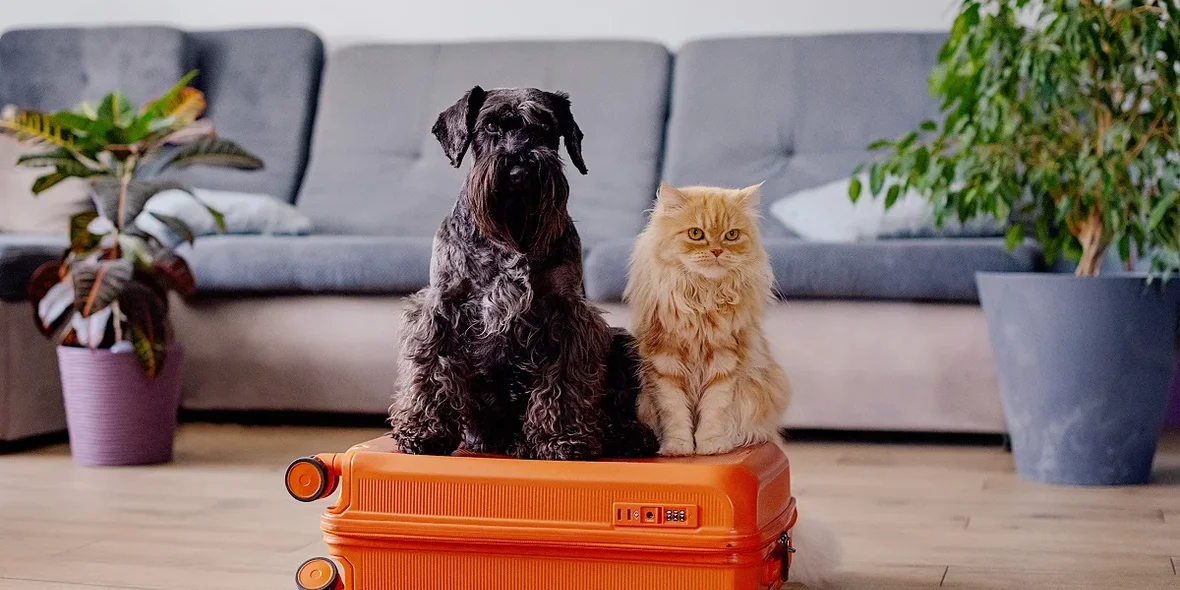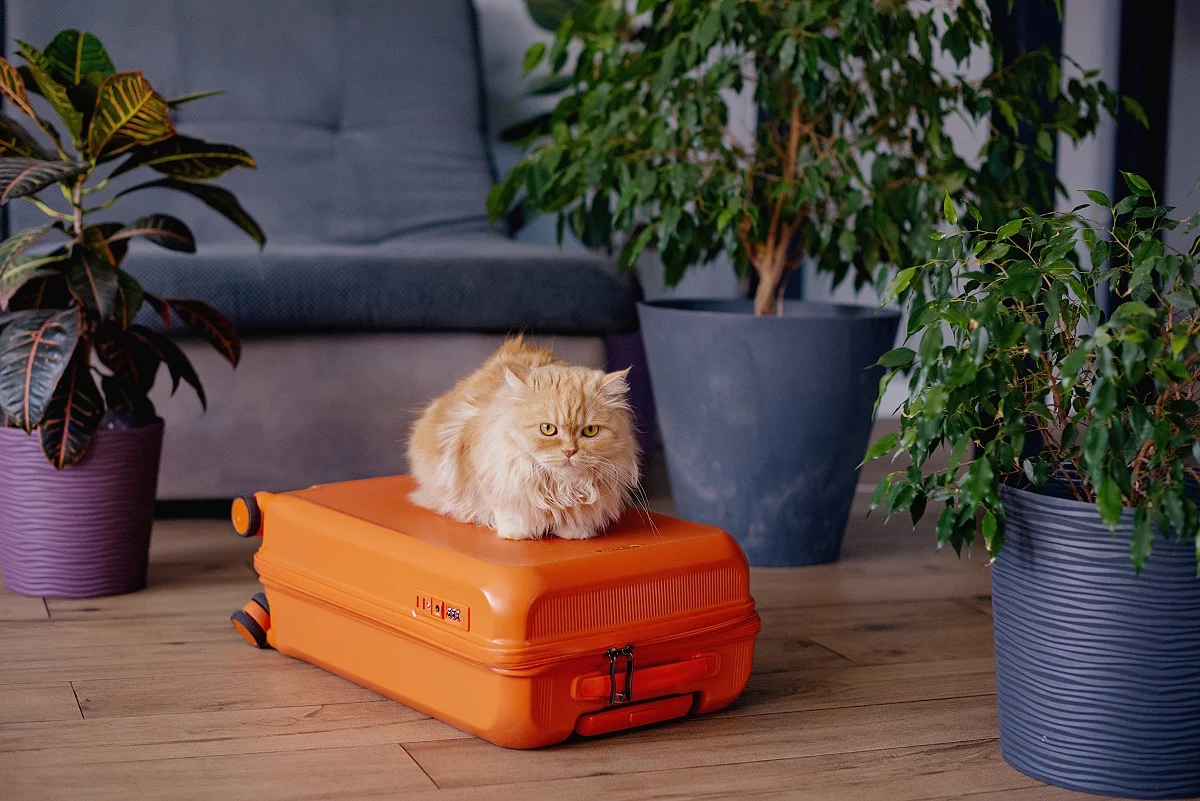
How to Bring your Turn Pet into Turkey: A Comprehensive Guide
Turkey is a favorable place to stay and transit. The country is the arrival point of many international flights, so it is important to familiarize yourself with the rules of importing pets into Turkey, even if you only pass through it with your pet.
This article will examine the rules for bringing pets into Turkey in 2024. And how to avoid problems when transporting your pet on an airplane.
Which Animals Can be Brought Into Turkey
Entry requirements for Turkey for importing animals are strictly regulated. The primary reason is to prevent the spread of aggressive animal species and the introduction of potentially dangerous (invasive) species into the local environment.
When transporting cats and dogs, each passenger is allowed to carry no more than two animals. They can be transported in one carrier if they are accustomed to each other or are relatives. Transportation is available either in the cabin or in the cargo hold, depending on their weight with the carrier. The weight rules are the same for fish, but they may only be transported in the cabin in quantities not exceeding ten.
Prohibited dog breeds for transportation:
- Pit bull terrier
- Japanese Tosa
- American pit bull terrier
- Bull terrier
- American Staffordshire terrier
- Argentine Dogo
- Brazilian Fila
- Rottweiler;
- Staffordshire bull terrier
- Neapolitan Mastiff
- Spanish Mastiff
- Dogue de Bordeaux
- Roman fighting dog
- Bandog Tosa Inu
- Mastiff
- Tibetan Mastiff or similar breeds
- Mixed breeds.
Turtles and other amphibians can be transported in the cabin or cargo hold. Ensure the species is not protected under CITES. Exotic and rare animals may require additional permits and documents. Consult with airline representatives for specific requirements.
Regulations for Importing Pets to Turkey
Animals cannot be transported to Turkey without proper procedures and vaccinations to prevent potential sources of infection. Importing sick animals can lead to widespread illness, making prevention crucial. Rabies is a particular concern, as Turks often allow animals into stores and shopping centers during cold seasons, increasing human exposure. Therefore, rabies antibody titers are necessary to confirm sufficient antibodies, though other requirements also apply.
Important note: According to the Turkish “Regulation on Veterinary and Sanitary Conditions for Non-Commercial Movement of Domestic and Farm Animals,” pet owners must contact the competent authority of the destination country or its Turkish representative office at least six months before departure. Always consult these authorities for specific information on your case.
Microchip
A chip is an integrated circuit hermetically sealed in a glass package. The glass is biologically neutral and does not cause rejection by the body. The insertion procedure may be a little painful, but the subsequent presence of the chip in the body does not cause any discomfort to the animal. The main advantage of the microchip is the availability of the pet's information in it in any modern veterinary clinic. Data stored in the microchip include:
- a unique identification number;
- owner name, contact phone number and physical address;
- the pet's name, breed, age, color, and special features;
- medical information about vaccinations, shots, and medical conditions and allergies.
To import animals into Turkey, they must be microchipped according to ISO 11784 or ISO 11785 standards. The microchip documentation should include the chip number, insertion date, and location on the animal. Chipping must be done before the rabies vaccination to ensure accurate vaccination records.
Vaccination Requirements and Rabies Titer Test
The main Turkey vaccination requirement is to make a rabies vaccination no earlier than 30 days before the rabies antibody test. This test is conducted 30-32 days after vaccination, at least three months before entering Turkey.
After confirming sufficient antibody levels, you must obtain an International Health Certificate from the Veterinary Department. Additionally, obtain a “Menşei Şahadetnamesi” from the Municipality and a “Pet Sağlık Formu” from the Customs Office 48 hours before travel.
Additionally, animals must be vaccinated against the following:
- Leptospirosis
- Parvovirus
- Distemper
- Infectious hepatitis and parainfluenza (for dogs)
- Panleukopenia, rhinotracheitis, and calicivirus (for cats)
There is a list of countries with unfavorable epidemiological situations regarding rabies, and airlines, including Turkish ones, have strict regulations for importing dogs from these countries into Turkey. Generally, the following are required for entry:
- Rabies titer tests showing antibody levels of at least 0.5 IU/ml.
- Accompanying documents verifying the test and its results must be presented at border control.
- The animal must be microchipped before the rabies titer test is conducted.
All rabies vaccines registered and certified by the European Union are recognized. This list includes vaccines such as Rabipur, Verorab, Rabisin, Nobivac Rabies, and others. Vaccination records, including the date, type, series, and number of the vaccine, as well as the veterinarian's signature and stamp, must be included in the pet's veterinary passport. In addition to mandatory rabies vaccines, there are optional but recommended vaccines:
- Bordetella vaccine for dogs.
- Feline Immunodeficiency Virus (FIV) vaccine for cats.
Pets should be vaccinated no earlier than 14 days before entry into the country and no more than one year before entry to ensure the animal's immune system has developed adequate protection.
Animal Health Certificate
An Animal Health Certificate ensures that pets crossing international borders are not carriers of infectious diseases that could pose risks to other animals and humans. In many ways, it is similar to a pet passport. Depending on the destination, a traveler with a pet may need one or the other. Let's take a look at both documents:
- Veterinary Passport. Primarily used in the European Union for travel between member countries. It is essentially the pet's health card, but with the addition of information about the owner. Includes data on health status, vaccinations, and treatment.
- Veterinary certificate. Used for international travel to countries outside the European Union. Certifies that the animal is healthy and meets the veterinary requirements of the destination country. It is usually valid for a short period of time (usually 10 days from date of issue).
Both documents may be required for travel from the EU to a non-EU country. If the destination country is an EU country and the departure country is not, the veterinary certificate is the main document.
Needed Documents for Pet Travel
To transport a pet to Turkey, you need to gather the necessary documents. The primary document for your pet is the veterinary passport, which includes vaccination information and details about treatments. Many veterinary products come with special stickers; if you administer treatments yourself, these stickers should be placed in the veterinary passport with the treatment date noted.
- Vaccination Certificate.
- Animal Health Certificate.
- Microchipping.
- Import Permit.
- Parasite Treatment Certificate.
- Owner’s Declaration.
The declaration is made in a free form and signed by the owner. It confirms that the animal belongs to the owner and is imported for non-commercial purposes.
Veterinary documents must be signed and stamped by a veterinarian. Moving with a dog to Turkey, as with any other animal, requires translation of all documents into Turkish or English.

Turkey Pet Import Rules and Requirements
The rules of transportation of an animal are more strictly regulated than for transportation of cargo or people. First of all, the transportation of an animal is an additional service, which has its own cost and nuances. The peculiarities appear both at the stage of booking tickets and in preparation for the trip. Even when selecting a suitable carrier for your pet, it is necessary to take into account the requirements of pet carrier dimensions for airlines you are going to fly with.
Booking a Ticket
It is better to book tickets as early as possible and immediately notify the airline representative of your intention to bring your pet, especially if the pet is to fly with you in the cabin. This is important because the number of seats for pets in the cabin is limited and varies by airline and plane type.
Before booking a ticket, familiarize yourself with the specific airline's rules regarding pet transportation. For example, you can find a specific pet policy of Turkish Airlines on its website. It includes the types of pets allowed, carrier sizes, and other requirements.
Pet Insurance Registration
Pet insurance in Turkey is not mandatory but is recommended, especially if your pet will be traveling in the airplane's cargo hold. While this mode of travel is generally safe for pets, accidents due to events like storms and turbulence can still occur.
Common insurance claims:
- Injuries caused by staff (insufficient container securing)
- Injuries due to weather conditions (turbulence, storms, etc.)
- Illness during the flight
The longer the flight, the more sensible it becomes to obtain insurance, as the likelihood of risk increases. In case of loss or damage to the pet’s carrier, the insurance company will compensate for a new carrier and any treatment required if the pet is injured.
Turkish Airlines offer the option to add pet insurance when purchasing a ticket through their website or mobile app. Insurance companies often provide more flexible insurance terms, creating policies that cover specific incidents. For example, if you believe your pet is unlikely to be injured but might get sick, you can opt for illness-only coverage.
Animal Transportation in the Cabin or Cargo
There are no particular airlines with pets in cabin availability. Depending on the weight with the carrier, your pet may either stay with you in the airplane cabin or be placed in the cargo hold. Transporting pets in the cargo hold is a common practice. The cargo hold, like the passenger cabin, is regulated for temperature, pressure, and ventilation, so you don’t need to worry about your pet’s well-being. The main issue for your pet will be stress, and veterinarians recommend placing an item with the owner’s scent in the carrier to help the pet feel more comfortable.
Cats, dogs, and some small birds may be transported, provided they are not antagonistic animals. This means that cats and dogs are not allowed in the same cabin. The pet must be calm and not cause inconvenience to other passengers. Airlines may refuse to carry aggressive or restless animals.
Pets weighing more than 8 kg may be transported in the overhead compartment (AVIH) with the carrier. Depending on the airline and aircraft model, the maximum weight may be up to 50 kg. The dimensions of the carrier are more democratic, with maximum dimensions of 75 cm in height, 75 cm in width, and 125 cm in length. However, it is better to check with a specific airline.
Pet transportation in the baggage compartment may require prior reservation and confirmation by the airline. In this case, the main requirements are for the carrier. The carrier must provide adequate ventilation and be sturdy. Ensure that the carrier is made without the use of flammable or toxic materials.
The pet should be fed, watered, and preferably walked a few hours before the flight. The bottom of the carrier must be lined with absorbent material. It is allowed to use an automatic drinker, but no food should be left out.
What Kind of Carrier is Needed
The main requirement for airlines is that the pet carrier meets all criteria. Besides standard regulations regarding its size, ventilation is a crucial factor. The carrier must provide adequate airflow through openings on three sides. The material of the carrier should be impact-resistant and durable.
The carrier must be spacious enough for the animal to stand, turn, and lie down in a natural position. For cabin placement, it must comply with the airline's specified dimensions, for example:
- Turkish Airlines pet carrier size: 23 cm in height, 30 cm in width, and 40 cm in length
- Pegasus Airlines: 32 cm in height, 32 cm in width, and 50 cm in length
The carrier must be clean, dry, and odor-free. Inside, there should be an absorbent pad to soak up the animal's excretions. The container must have a tag with the owner's contact information and details about the animal. Ideally, the bottom should be waterproof, and the doors should be large enough for access to the animal. A single carrier can hold no more than 2 cats, 2 dogs, or 2 birds if they are a mother and offspring or offspring from the same mother.
What is the Pet Carriage Fee
Turkish Airlines pet policy sets pet transportation fees based on their weight and whether they are transported in the cabin or cargo hold. Transportation in the cabin for pets weighing up to 8 kg (including the carrier) costs 375 Turkish lira ($11.50). For destinations in Northern Cyprus, the price is 650 Turkish lira ($19.80).
Pet fees for airlines are:
|
Weight of the animal with the carrier, kg |
Cost, TRY/USD |
|
0–15 |
600/18.2 |
|
16–22 |
650/19.8 |
|
23–28 |
750/22.8 |
|
Over 28 |
800/24.3 |
Price change when flying into Ercan airport (Northern Cyprus)
|
Weight of the animal with the carrier, kg |
Cost, TRY/USD |
|
0–15 |
900/27.4 |
|
16–22 |
1000/30.4 |
|
23–28 |
1100/33.4 |
|
Over 28 |
1200/36.5 |
For flying pets internationally, fees may vary based on the destination and the weight of the animal with its carrier. For example, transporting pets in the cabin with Turkish Airlines on international flights costs $65 USD, while transportation in the cargo hold ranges from $130 to $190 USD, depending on the weight.
Pegasus Airlines
Pegasus Airlines has slightly different rules for importing pets to Turkey. The main distinction is that only cats and dogs are allowed for transport. Other types of animals are permitted exclusively on domestic flights. Approved bird species can be transported only on domestic flights and only in the cabin.
The rules for transporting animals with Pegasus Airlines include:
- Transporting wild, predatory, and fighting dogs is prohibited.
- Kangals can be transported only up to six months of age. The list of prohibited breeds includes Caucasian Shepherds, Chow Chows, Mastiffs, Neapolitan Mastiffs, Pit Bull Terriers, and Presa Canarios.
- Pets in the cabin (PETC) can be transported on all Pegasus flights, except for flights to England, Bahrain, Qatar, the United Arab Emirates, and Saudi Arabia.
|
Transportation types |
Weight of the animal with the carrier, kg |
Cost, TRY/USD |
|
In the luggage compartment |
Over 15 |
550/16.7 |
|
In the luggage compartment |
8–15 |
450/13.7 |
|
In the cabin |
до 8 |
350/10.6 |
For international flights, it costs €65 to transport a pet in the cabin.
Guide Dog Transportation
Guide dogs are specially trained to assist people with disabilities. Due to these special roles, guide dogs are allowed to travel in the airplane cabin with their owners, provided they are accompanying a passenger with a disability. Importantly, there is usually no additional fee for guide dogs. It is recommended to inform the airline in advance about the guide dog and provide all necessary documents for verification. These documents include:
- Certification of the guide dog’s training
- Certification of the owner’s health condition
- Veterinary passport with up-to-date vaccinations
- Active veterinary microchip
The guide dog must be on a leash and remain at the owner's feet throughout the flight, and a muzzle may also be required. If the dog does not meet safety or behavioral requirements, it may not be allowed to fly.
Frequently Asked Questions about Moving Pets to Turkey
Which animals are banned from entering Turkey?
Is it possible to bring an animal in transit through Turkey?
Do I need a photo of my pet in the pet’s passport?
Are there weight or size limits for my pet?
Will my pet be quarantined?
Author
I write informative articles about real estate, investments, job opportunities, taxes, etc.























